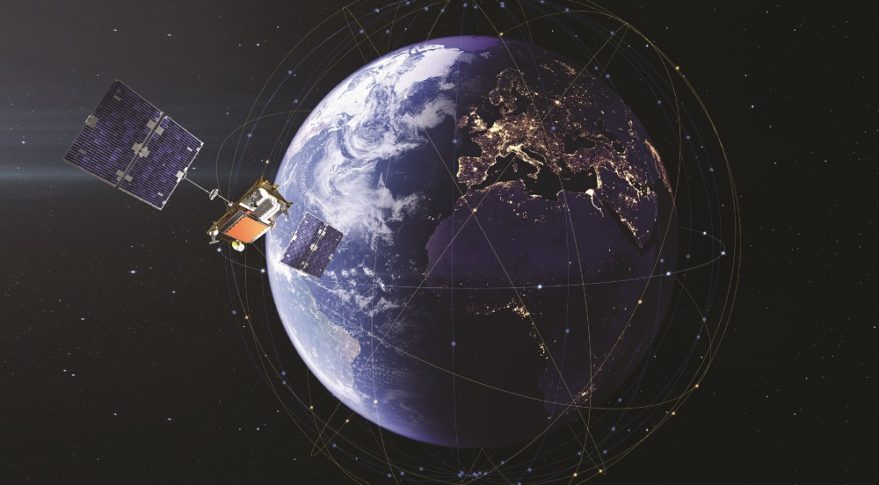TAMPA, Fla. —Iridium unveiled chip maker Qualcomm Jan. 5 as the partner behind plans to connect smartphones to its satellite constellation this year.
U.S.-based Qualcomm has developed a product called Snapdragon Satellite, which it said can be added to Android smartphones and other devices to support two-way communications via Iridium satellites.
Potential uses include emergency SOS services, SMS texts, and other low-bandwidth messaging applications in areas outside terrestrial networks and where Iridium’s global constellation is licensed to operate.
Any emergency messages would be routed through response teams run by Garmin, a GPS technology specialist and longtime Iridium partner.
Jordan Hassin, Iridium’s executive director of communication, acknowledged widespread speculation in the run-up to the announcement about South Korean smartphone maker Samsung being its direct-to-smartphone partner.
At one point Iridium was also rumored to be working with Apple, which in September announced a partnership with Iridium’s rival Globalstar for services currently limited to SOS.
However, rather than partnering with a specific smartphone vendor, Hassin said Iridium chose to team up with Qualcomm to enable its technology in multiple smartphone brands that run Android, the most popular operating system for mobile phones.
In addition to supporting hardware development, Qualcomm has an agreement to sell the service to companies on Iridium’s behalf.
Qualcomm’s chipsets are already commonly used in Samsung, Motorola, and other smartphone brands worldwide.
To connect to Iridium’s 66-strong constellation in low Earth orbit, smartphone makers would need to integrate the latest generation of a Qualcomm chipset that is geared toward premium phones.
Hassin said “several” Android customers are already integrating Snapdragon Satellite, with the first products expected to be released in the second half of 2023.
In a media briefing, Iridium CEO Matt Desch said it is still “being worked out” how and if smartphone customers would be charged for using its satellite-enabled services.
Apple has said it will offer satellite-enabled SOS services on its range of iPhone 14 smartphones for free for two years.
Francesco Grilli, vice president of product management at Qualcomm Technologies, told the briefing the company successfully demonstrated Snapdragon Satellite Jan. 4 in Las Vegas as part of the Consumer Electronics Show (CES).
He said the company was able to send basic text messages in an average of three seconds with a smartphone during the demo.
While the service will initially target smartphones, the companies said they are considering expanding to other devices, including laptops, tablets, vehicles, and small Internet of Things machines.
Desch said the company could also consider upgrading its capabilities to add higher bandwidth services later, in line with other businesses that are also looking to enter the direct-to-smartphone market.
“We certainly have aspirations to go well beyond where we are today,” he said.
In addition to Apple and Globalstar, other companies seeking to provide direct-to-smartphone services from LEO include SpaceX in partnership with T-Mobile, AST SpaceMobile, Lynk Global, and Sateliot.
In July, Qualcomm announced plans with Swedish telecoms equipment maker Ericsson and French aerospace company Thales to demonstrate 5G on smartphones via LEO satellites.
However, Grilli said these plans are still in the research and development phase, and any commercial services would require spectrum and hundreds of new satellites to become a reality.
He said it is unlikely Qualcomm’s venture with Ericsson and Thales would “see any product before 2026 at the earliest,” and that is optimistic.

